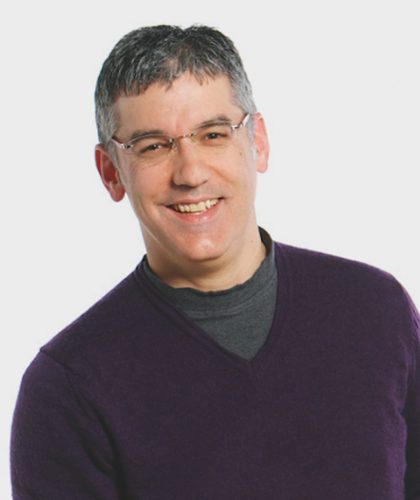
Monroe, Christopher
Joint Quantum Institute
Quantum Technology Center
Electrical and Computer Engineering
Christopher Monroe is an quantum physicist who specializes in the isolation of individual atoms for applications in quantum information science. After graduating from MIT, Monroe earned his Ph.D. in Physics in 1992 from the University of Colorado, under Carl Wieman and Eric Cornell, where he paved the way toward the achievement of Bose-Einstein condensation. From 1992-2000 he was a postdoc then staff physicist at NIST, in the group of David Wineland. With Wineland, Monroe led the team that demonstrated the first quantum logic gate in 1995, and exploited the use of trapped atoms for the first controllable qubit demonstrations. In 2000, Monroe became Professor of Physics and Electrical Engineering at the University of Michigan, where he pioneered the use of single photons to couple quantum information between atoms and also demonstrated the first electromagnetic atom trap integrated on a semiconductor chip. From 2006-2007 was the Director of the National Science Foundation Ultrafast Optics Center at the University of Michigan. In 2007 he became the Bice Zorn Professor of Physics at the University of Maryland and a Fellow of the Joint Quantum Institute. In 2008, Monroe's group succeeded in producing quantum entanglement between two widely separated atoms and for the first time teleported quantum information between matter separated by a large distance. Since 2009 his group has investigated the use of ultrafast laser pulses for speedy quantum entanglement operations, pioneered the use of trapped ions for quantum simulations of many-body models related to quantum magnetism, and has proposed and made the first steps toward a scalable, reconfigurable, and modular quantum computer. Monroe is a UMD Distinguished University Professor.
Research Area:
Research Projects:
- Experimental quantum information science
- Quantum computing and quantum siumulations with trapped atomic ions
- Quantum networks with atoms and photons
- Microfabricated atom trap structures
Centers & Institutes: Joint Quantum Institute; Physics Frontier Center; Center for Quantum Information and Computer Science (QuICS); Quantum Technology Center
In a Smooth Move, Ions Ditch Disorder and Keep Their Memories
Researchers have demonstrated a new way for atomic ions to host disturbances that do not fade away.Nine Maryland Engineers Recognized as Being "One in 1,000"
Clark School researchers among the "who's who" of influential researchers, according to Clarivate.UMD Leads New $25M NSF Quantum Leap Challenge Institute for Robust Quantum Simulation
New institute will significantly add to the vibrant quantum research ecosystem established in the mid-Atlantic region.Maryland Graduate Engineering Ranked #10 Public in the Nation
From extreme batteries to windows made from wood, Clark School’s trendsetting work ranks it among the country’s Top 10 public engineering schools for the 3rd consecutive year.IonQ: From Maryland to Wall Street
The College Park-headquartered company, rooted in UMD research, announced plans to go public today.Monroe Elected OSA Fellow
Monroe has been elected for pioneering leadership in quantum information processing with trapped ions and ultrafast optics technology, and leadership in the National Quantum Initiative.Seven UMD Engineers Recognized as Highly Cited Researchers
Clarivate Highly Cited Researchers have published multiple papers frequently cited by their peers over the last decade.IonQ Reveals World’s Most Powerful Quantum Computer
IonQ has developed 32 qubit hardware with an “expected” quantum volume greater than 4 million.New $115 Million Quantum Systems Accelerator to Pioneer Quantum Technologies for Discovery Science
Berkeley Lab-led Center to catalyze U.S. leadership in quantum information science, and strengthen the nation's research community to accelerate commercialization.Charting a Course Toward Quantum Simulations of Nuclear Physics
Other professional society fellows
- National Academy of Sciences